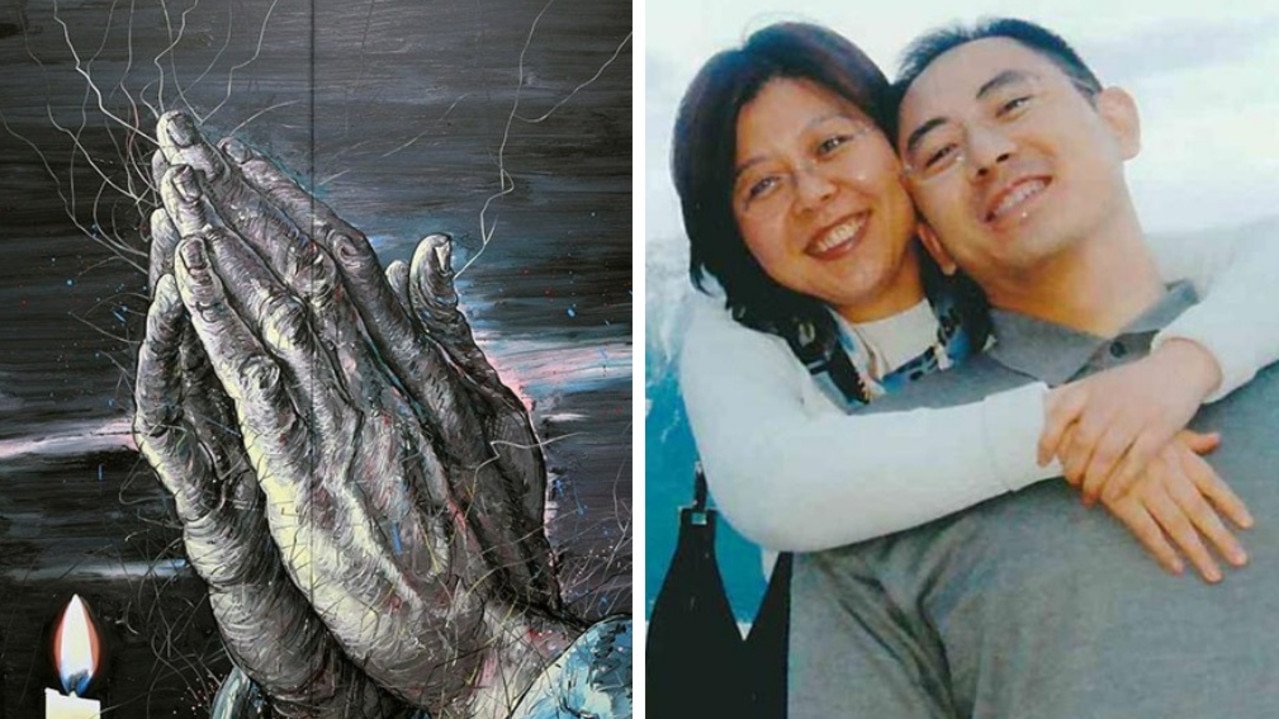Chinese billionaire, Weihong Duan’s painting mysteriously appears at auction
She was rich. She was powerful. She “disappeared” in 2017. Today, a famous painting she owned has strangely appeared on sale in Beijing.
She was rich. She was powerful. She “disappeared” in 2017. Today, a famous painting she owned has strangely appeared on sale in Beijing.
The fate of real estate billionaire Weihong “Whitney” Duan is unknown. Her ex-husband doesn’t know. His parents don’t know. Her friends haven’t seen or heard of her.
Whitney was a strong advocate for contemporary Beijing-based artist Zeng Fanzhi.
She bought several of her paintings for large sums.
Whitney was also a power player.
She had a lot of friends. Most were in high places. She was close to the wife of former Chinese Premier Wen Jiabao. She worked with Sun Zhengcai, who saw himself as China’s top candidate.
But Whitney backed the wrong horse.
When Xi Jinping took control of the Chinese Communist Party in 2013, he launched a high-profile “anti-corruption†campaign. Many of its targets were among the Chinese ruling elite. Unfortunately, most of them were simply political opponents of Xi.
Sun was convicted of bribery in 2017.
Around the same time, Whitney, then 50, disappeared.
But the sudden appearance of one of his most famous art purchases at a Beijing auction house has rekindled interest in his plight.
Pray, hope – and don’t worry
Whitney bought “The Prayer” from Zeng for around US $ 5 million (AU $ 7.01 million), according to her former husband.
The snow appeared at auction.
It is in one of the most prestigious art houses in Beijing.
It is proposed with the mention “entrusted by an important institution”.
Four other works by Zeng are in the catalog, all offered by the same unnamed government agency.
How they got there is not explained.
The auction house is apparently unaware of the provenance of the paintings.
The art world only became aware of the connection because Whitney’s ex-husband Desmond Shum left China and wrote a book about his experience – titled Red roulette.
Shortly before its publication earlier this year, Whitney made a sudden reappearance.
After four years of silence, she called her ex.
She asked for the book to be taken down.
That, Shum said, was all she had the right to discuss.
“Although many countries have experienced mysterious and sometimes fatal disappearances, the Chinese government has developed this technique to silence people into an art form,” said Jerome Cohen, analyst at the Council on Foreign Relations.
The list is long. And growing.
Tennis champion Peng Shuai. Premier Zhao Ziyang. Human rights lawyer Gao Zhisheng. Widow of Nobel Peace Prize Laureate Liu Xiaobo, Liu Xia.
“And tens of thousands of people are illegally forced, for varying periods of time, into what is essentially house arrest, unable to speak or move freely,” Cohen adds.
“Throwing eggs against a stone”
The eyes of the world are on Beijing.
It is not only the will to “disappear” of its own citizens. But also those of non-conforming nations.
Hostage-taking is only one aspect of Beijing’s “wolf-warrior†diplomacy.
Two Australians are currently being held in China on undefined “national security†grounds.
Writer Yang Hengjun.
TV presenter Cheng Lei.
No one knows why. No one knows where. Few have heard or seen them since.
Their plight has prompted Canberra to formally warn Australian travelers that they risk arbitrary detention and trial under a non-transparent, Party-controlled justice system if they travel to China.
“In the short term, there is little Australia can do to help detainees”, writes Han Yang, former PRC diplomat based in Sydney.
“The power imbalance between the two countries means that it is futile for Australia to engage in trade sanctions against China in retaliation. And Australia’s constitutional democracy and its independent judiciary will not allow Canberra to arbitrarily detain Chinese nationals as tit-for-tat countermeasures.
That they are political hostages is almost certain.
In 2018, after Huawei executive Meng Wanzhou was arrested in Canada for alleged trade embargo violations, Beijing seized two Canadian citizens on unspecified or ill-defined charges.
They were released as soon as Meng was allowed to return.
“Even with increasing international pressure, it seems unlikely that Beijing will change,†Cohen argues. “As Peng’s explosive complaint noted, seeking justice in today’s China continues to be, as the Chinese saying goes, as desperate as ‘throwing an egg at a stone’.”


Comments are closed.